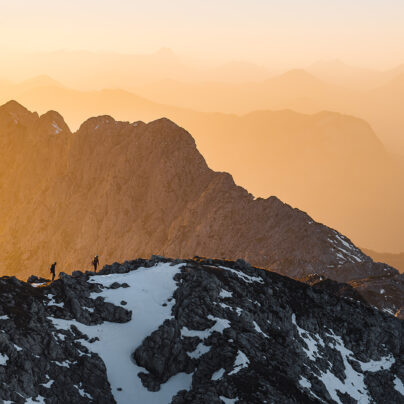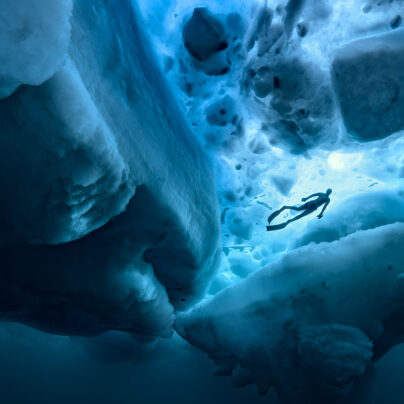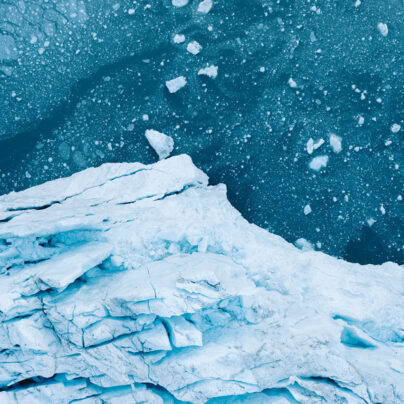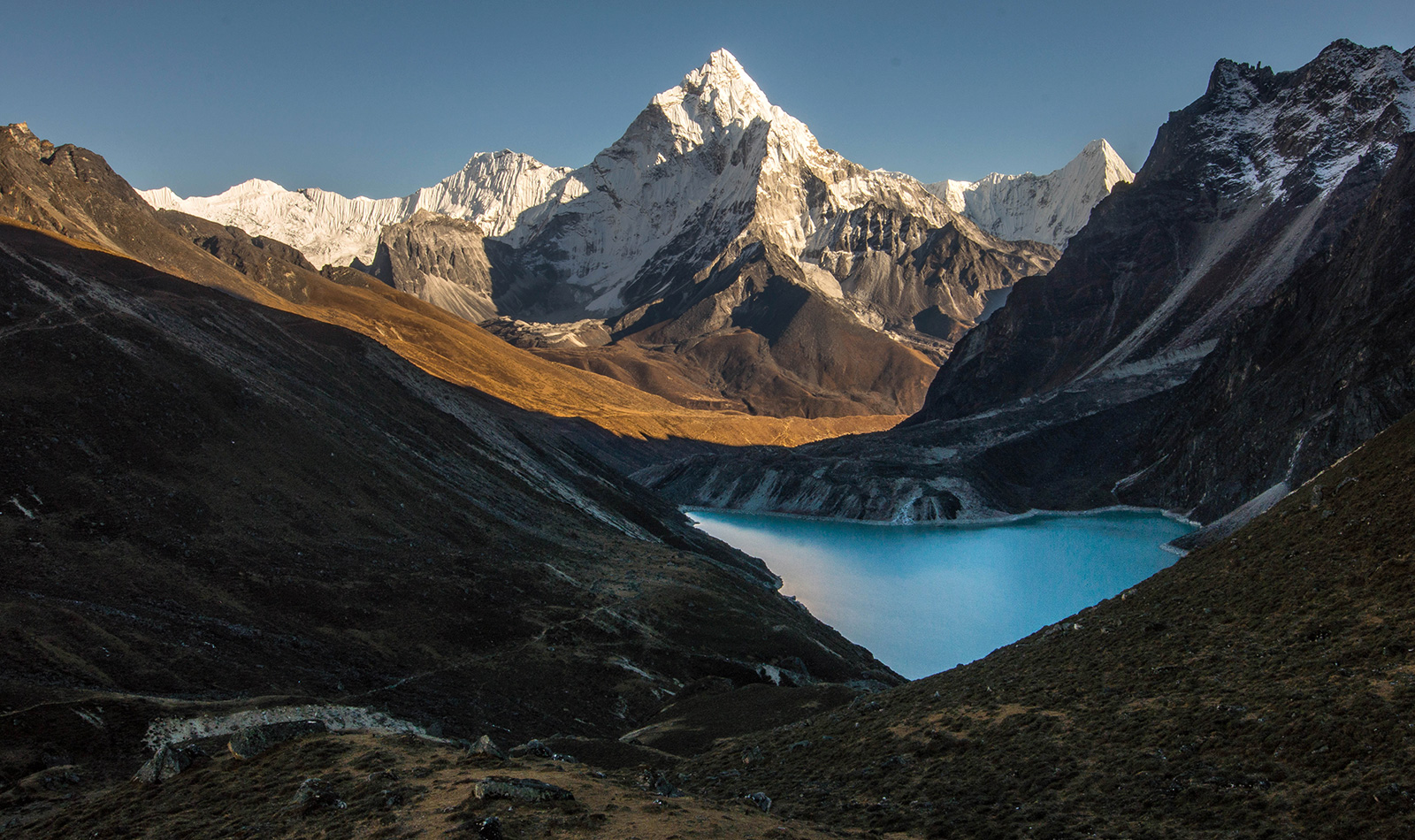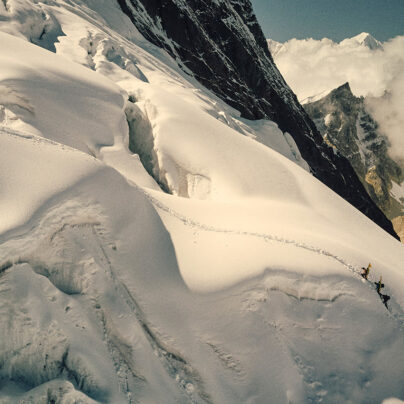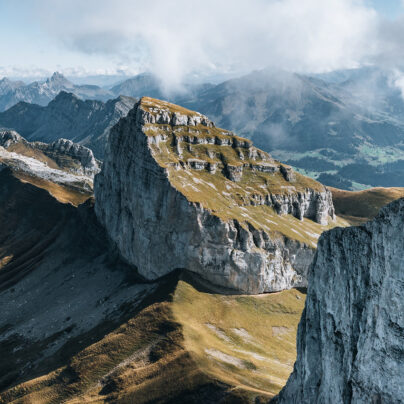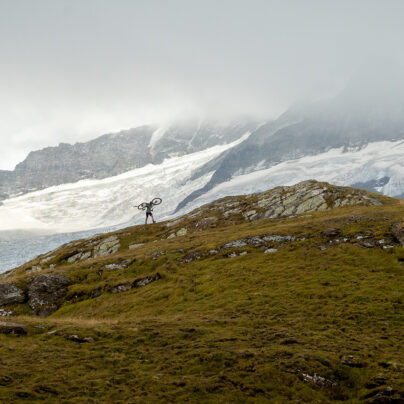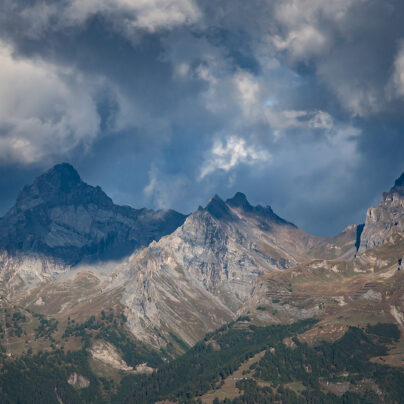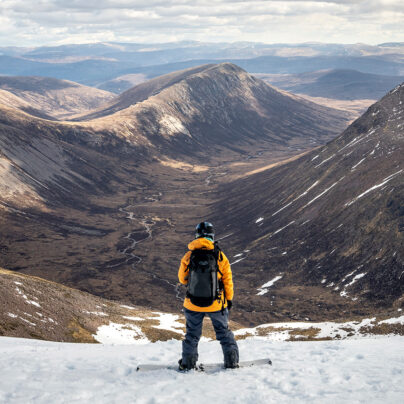The Pass
Tyler Anderson
For the first time that day, I stood motionless, surveying the endless white expanse in front. It had snowed recently, and the powder, all but crystallised now, had concealed the footprints that I’d hoped would guide us. Shimmering hills of ice undulated like waves, the glare so bright it was almost blinding. It was at once the most beautiful and desolate place I had ever been to – a frozen wilderness of rock and ice.
‘What’s wrong?’ Mim called from behind me. Her voice echoed and then disappeared, as if swallowed down the throat of the immense glacial tongue lolling out before us.
The air was still but thin. As I inhaled, the bitter cold of it stung my nostrils. I listened as the ice creaked and groaned. We had been advised to arrive at this stage of the pass early. Too late, the wrinkled old woman in the lodge had warned us, and the sun may melt the glacier, opening crevasses that can shatter an ankle, if not devour you entirely.
‘What’s up?’ Mim demanded again, voice breathless as she sidled up beside me. She tugged the blue bandana down from her mouth. Her face was flushed and wind-burnt, her lips badly chapped.
‘Nothing.’ I shielded my eyes as the sun crested the nearest mountain, a 7,000m peak resembling a serrated kitchen knife. I glanced uneasily at my watch. We were more than an hour behind schedule, and the ice had already begun to weep.
Six hours earlier, we had woken, shivering from the cold, in the sleepy town of Dzongla in north-east Nepal. We’d first set off two weeks before. Our journey had seen us climbing through some of the most unforgiving environments in the world, watching the vegetation thin and vanish completely as we’d climbed to higher and higher altitudes.
We slipped from our sleeping bags and dressed in silence – wool socks, thermal shirts, jumpers, down jackets – before stumbling down a darkened hallway towards a room glowing with dull orange light. Inside the air was warm and smoky. The silence was disturbed only by the crackle of a yak-dung fire burning in a soot-covered stove, and the occasional rattle as the wind shook the doors.
‘Cho La today,’ a man said as he appeared from the kitchen, and set two bowls of muesli and mugs of steaming milk in front of us. I nodded, unsure if it was a question.
‘Is it hard?’ Mim asked. The man made a face. ‘No,’ he decided after a moment. ‘You go alone?’
Mim nodded. ‘No porter?’ Another nod.
The man seemed to momentarily reconsider his assessment, but then shrugged. ‘You’ll be OK.’
An hour later we were trudging along a path in a windswept field, the pinkish blush of a late-morning sunrise framing the edges of the Himalayas. Despite the chill – the thermometer read a few notches below zero – we had already shed our down jackets and mittens, and we were debating another break to take off our sweaters, when suddenly Mim broke off mid-sentence and pointed. There, across a rocky plain, a dark silhouette loomed in the distance. As we got nearer, jagged lines began to sharpen until we found ourselves standing in the shadow of a steep escarpment of black rock.
Across a rocky plain, a dark silhouette loomed in the distance. As we got nearer, jagged lines began to sharpen until we found ourselves standing in the shadow of a steep escarpment of black rock.


The notoriously unstable glacier was pitted by crevasses and clear, glittering pools that often required winding detours, costing us precious time. We had no crampons or axes, just battered boots that should have been replaced long ago.
‘Let me go first,’ Mim said. Without waiting for an answer, she tightened her pack around her waist, tossed her walking pole up to the nearest ledge, and began to scramble up. I watched as her feet expertly found gaps and holds that I couldn’t even see. Like a ballerina on stage, each move was precise yet fluid, her whole body moving as one.
I was less graceful. By the time I threw off the crippling weight of my pack and pulled myself over the lip of the ascent, I was covered in a thin film of sweat. We had reached a semi-flat surface, a saddle that straddled the valley on one side, Cho La on the other. In between, its crests like a series of rollers frozen mid-break, the glacier sparkled siren-like in the mid-day sunshine.
As I gazed at it, stories I’d banished from my mind began creeping back in. I remembered tales of rockfalls and avalanches, of boulders crashing from the nearby cliffs and narrowly missing hikers. Weather, already erratic in the Khumbu, was said to be especially fickle here. Clouds that looked soft and cottony in the distance could shift in an instant, catching unsuspecting trekkers in a life-threatening storm of wind and snow.
Getting across was slow. The notoriously unstable glacier was pitted by crevasses and clear, glittering pools that often required winding detours, costing us precious time. We had no crampons or axes, just battered boots that should have been replaced long ago and three walking poles between us. Before taking a step, I would poke anxiously at the ice, feeling for the loose snow that would mark a crevasse. Still, I managed to twist my pole into a knot as it plunged into a hidden chasm.
Our nerves were frayed by the time we made it across. At the far side of the glacier, and after climbing another short escarp, a clothesline of wind-lashed prayer flags announced that we had reached the highest point of the Cho La Pass. At 5,420m, we were higher than we had ever been before. Higher than Grand Teton and Mount Whitney. Higher than the Matterhorn. But any elation we felt was short lived. As I leaned over the edge of the pass, I could see the scars of switchbacks snaking down a vertiginous scree slope.
‘Shit,’ I murmured. Mim, who had been gazing at a couple of ant-like figures negotiating the glacier behind us, turned around. ‘Shit,’ she agreed.
The descent seemed endless. Every switchback opened to a new one, every drop a bigger one. The bottom – marked by the black arm of a twisted river – never seemed to get any closer. As we stumbled and slid our way down, never making it more than a few steps before the rocks would slip out beneath us, I began to struggle. The fear, adrenaline, and mind-numbing concentration required to clamber down a scree slope as steep as an escalator began to overwhelm me.
We reached a fork in the trail. On the right, the path wound around a loose bend. On the left, it bisected the trail, descending quickly in a couple of deep stone steps. Mim glanced in both directions, and then turned left. She was better at descents, a better guide – better at, well, everything – and yet, for whatever reason, I didn’t follow her. I turned right.


Like the aftermath of a car crash, I’m not sure exactly what happened. It was a blur: two instants, before and after. But here is what Mim said happened. Hearing a curse, she spun around. I stepped on a rock, which moved, pitching me forward. My weight shifted. Gravity pulled. My arms shot out to break my fall, and I remember feeling a sharp pain as a rock pierced my hand. I began to roll – fast, too fast – towards the cliff’s edge. My nails dug into the dirt and my legs kicked helplessly as the brink rushed closer, closer…
And then I stopped, momentum halted by a boulder. My leg was twisted behind me, stuck beneath the weight of my pack, and blood gushed from my hand. I heard footsteps, and then Mim’s panicked voice.
‘Tyler! Tyler, are you OK? Jesus, you’re bleeding!’
‘Just my hand,’ I said, showing her. Like a child, my first instinct had been to suck the blood from my wound, which now made it look as though I was bleeding from my mouth.
‘Can you walk?’ Mim looked up the trail. We were about halfway down, and completely alone. ‘Or I’ll carry you. Or get help. Wait, just wait here.’ She began to turn.
‘I can walk,’ I said, not knowing if it were true.
Wincing, I slowly unfolded my leg from beneath my crumpled body. My knee spasmed, but it was not as stiff as I had feared. I pushed myself up. Mim reacted instantly, as if to catch me if I fell. ‘It’s OK,’ I assured her. ‘I’m OK.’
By the time we reached the bottom I was stiff, dirty, and bloodied, but otherwise unhurt. The minor injuries I sustained would subside with time. So too would my nerves. For the next four hours, we would limp towards the nearest lodge, stopping often to rest – and, once, to break the ice that had frozen over the river to refill our water bottles. By nightfall we would stumble into the lodge, where Mim would wrap my hand in a makeshift bandage of tape and toilet paper. And we would eat, and have tea, and a day that had been one of the most exhilarating of my life would slowly fade from now to then. It would become a story. A thing to be told. A memory, one that would somehow, inexplicably, grow clearer over time.
Tyler Anderson is a writer and photographer with a passion for all things outdoors. Whether kayaking in Denali, trekking in Patagonia, or pack rafting in Nepal, he often finds that the best travel tales are the ones where the most can go wrong. He is based in Melbourne, Australia.
